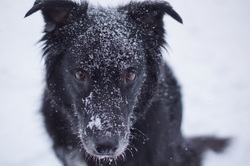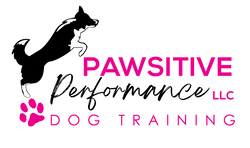 When our dogs get older and unable to do performance any longer, what then? Often we all get new puppies to train. It is important to continue to pay attention to the physical and mental needs of our retired dogs. There are a few things that I think are very important to keep in mind. Number 1-WEIGHT: I believe it is VERY important to make dietary adjustments when older dogs become less active. A less active dog does not need as many calories and the single most important thing you can do for your older dog is keep them THIN. Extra weight on the joints can cause pain, inflammation and deterioration. If you are unsure how to tell if your dog is a good weight, please refer to this fantastic article written by Chris Zink, DVM. (other useful articles found on this page) http://www.caninesports.com/useful-info.html Number 2 - STRENGTH: What about K9 Conditioning for the older dog? Depending on the age and activity level of the dog, a conditioning program will help your dog gain muscle, maintain muscle and or reduce muscle loss caused by inactivity and age contributions. Number 3-MENTAL: Old dogs CAN learn new tricks and many of these tricks will help to strengthen, or maintain muscle mass as well as mentally challenge your dog. My oldest dog Stanley is 12 years old and he has not lost much muscle as he ages. When I am working the other dogs on new tricks, conditioning exercises and even agility practice he is right there waiting his turn. Do I make adjustment for him, sure I do. I modify the difficulty of the exercises and time spent. If we are doing agility, we skip the A-frame, lower the jumps to half his regular jump height and have fun. Performance dogs are not generally happy just to BE. They want activity and challenges in their life. Finding the balance that works for your dog is Key. Don’t over exercise your dog until they are sore and limping the next day, even if it is a trip to the beach and they are having a blast. Don’t allow your older dog to get fat and make sure you are providing mental challenges. And by far the most important things is to take a few moments every day to hug your older dog and thank them for being your best friend, for doing all the things we ask of them, for being our guinea pig in training and for loving us even when we make mistakes. Bobbie Lyons Email: [email protected] Website: http://www.pawsitive-performance.com/blog.html
Julie Rice
4/30/2014 02:46:56 am
That's what I love about K9 Nosework. It's so gentle on the dog's body but very stimulating for their minds.
jeff
5/1/2014 01:06:55 am
I race sled dogs and my old timers train my pups in behavior and running they run with the slower team free not harnessed, unless they want to be. A couple have been rehomed, but that is an exception not the rule. I have 9 yr old girl that runs out in front of the team to show them the way and a 10 yr old stud that loves to run with the team in harness
Hollis McGuire
5/6/2014 09:08:30 pm
I save Rally for the older dog. They have loved the training, being back in the ring and being awesome and the center of attention! If I am fortunate enough to have them still with me when Rally is too much they still have a place in the training rotation, as long as they have any interest. I've seen this interest remain keen until the end of their days.
Janet Moyer
5/17/2014 02:26:09 am
All of my Shelties (ages 17, 12, 6, 5) do Nosework. It is fun for them and a win-win (treats involved). My oldest boy at 17 is just as eager Comments are closed.
|
AuthorBobbie Lyons, CCFT, KPA CPT Archives
April 2019
Categories |

 RSS Feed
RSS Feed